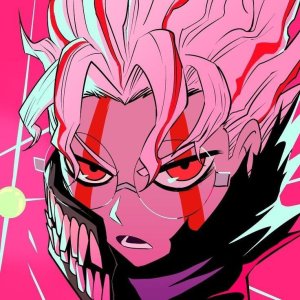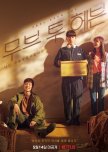This review may contain spoilers
When Emotion Finds the Perfect Balance
This series had never really tempted me, but on a friend's recommendation, I finally decided to watch it… and I must say, I was pleasantly surprised.
The setup is particularly well-executed: every character contributes something meaningful to the progression of the story. The flashbacks are used effectively, whether to explore the lives of Geu-ru and his uncle Sang-gu, or to add depth to the deceased characters.
Geu-ru’s autism further enhances the emotional dimension of his story. His difficulty in expressing emotions makes him incredibly touching without ever falling into excessive pathos.
Each subplot is carefully crafted. The series also manages to insert perfectly measured touches of humor, never intrusive, which never alter the main atmosphere — a rare and precious balance.
The same goes for the fight scenes: unlike some Korean productions where the action can become over-the-top, here everything remains credible and serves the narrative.
My only regret concerns the character of Sang-gu. His relationship with the family, especially with his brother, deserved to be explored in greater depth.
Finally, the ending felt a bit rushed. An epilogue projected into the future, showing how Geu-ru and his uncle had evolved, would have been a beautiful way to conclude this story with even more emotion.
The setup is particularly well-executed: every character contributes something meaningful to the progression of the story. The flashbacks are used effectively, whether to explore the lives of Geu-ru and his uncle Sang-gu, or to add depth to the deceased characters.
Geu-ru’s autism further enhances the emotional dimension of his story. His difficulty in expressing emotions makes him incredibly touching without ever falling into excessive pathos.
Each subplot is carefully crafted. The series also manages to insert perfectly measured touches of humor, never intrusive, which never alter the main atmosphere — a rare and precious balance.
The same goes for the fight scenes: unlike some Korean productions where the action can become over-the-top, here everything remains credible and serves the narrative.
My only regret concerns the character of Sang-gu. His relationship with the family, especially with his brother, deserved to be explored in greater depth.
Finally, the ending felt a bit rushed. An epilogue projected into the future, showing how Geu-ru and his uncle had evolved, would have been a beautiful way to conclude this story with even more emotion.
Was this review helpful to you?





